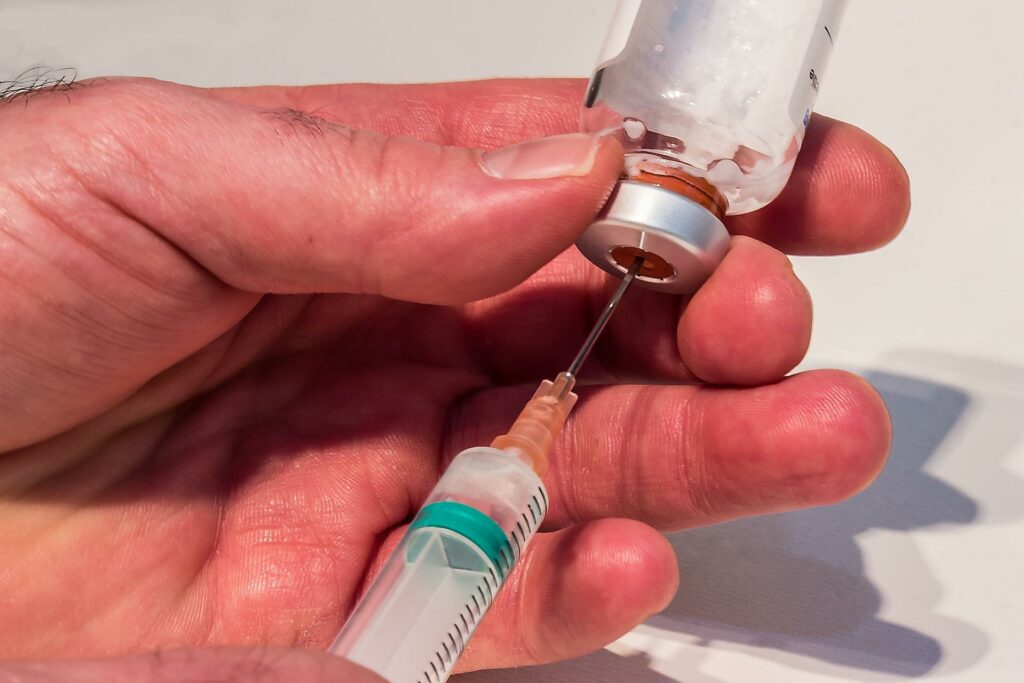How long will I need Testosterone Replacement?
Posted by: Men's Health Boston in Uncategorized on May 1, 2022
Stop us if this sounds familiar:
- You feel tired; really tired. Not just a “today-was-hard” kind of tired, but a deep-in-your-bones exhaustion that doesn’t seem to get better, even after a good night’s sleep…
- You’ve felt much more irritable lately. Some days it feels like a struggle just to get out of bed, and other days it feels like even the smallest thing can set you off…
- You’ve noticed your general interest in sex has faded over the past few months. You used to feel excited to get intimate with your partner, but recently that has been replaced by a nagging feeling of indifference. Maybe you’ve even had difficulty getting or maintaining a firm enough erection…
- Your body seems to be changing, and not in ways you feel good about. You’ve started carrying some extra weight around the middle, and your muscle just doesn’t feel as strong as it used to…

If you’ve felt any, or all, of these symptoms, we want you to know that you aren’t alone. Researchers estimate that over 38% of men aged 45 years or older may suffer from low testosterone levels, a significant contributor to all of the symptoms listed above. That translates to roughly 8.4 million men, many of whom are frustrated and leading lives that feel inadequate.
We meet these men every day in our clinic at Men’s Health Boston. We listen to their stories, evaluate their health and hormone status, and help determine an actionable plan to get them back on their feet. More than anything, we aim to provide hope – that the freedom and fulfillment they are searching for is possible.
Testosterone Replacement Therapy (TRT) is one of the many tools in our toolbox to do that, and it is a particularly powerful one. As thought leaders in this area, we have written extensively on the benefits of Testosterone Replacement. But as with all therapies, there are considerations that need to be assessed and discussed with patients, in order to determine the best course of action for each individual.
One of the most common questions we get from men in our clinic is, “How long will I need to take Testosterone for?” It’s an understandable concern, especially when you discuss adding a new medication. Our answer to this is simple: you can stay on testosterone therapy for as long as you feel it is benefiting you.
Below, we highlight some of the rationale behind this recommendation, and what makes TRT a safe therapy for use indefinitely.
Is testosterone therapy safe?
We understand that this is a major concern for many of our patients, and that misconceptions about testosterone are rampant. But it’s important to consider that TRT is an FDA-approved treatment for a clinically-recognized disorder called “hypogonadism”, where the testes produce inadequate amounts of testosterone, leading to adverse health effects. When taken responsibly under the guidance of a licensed medical professional who is appropriately evaluating patients and routinely monitoring blood work, TRT is considered to be very safe.
Research on long-term use of testosterone replacement consistently demonstrates sustained benefits, in some cases following patients for decades. In addition, improvements in body composition and muscle mass while on TRT might confer additional metabolic protection from chronic disease in long-term users.

As with every therapy, there are potential risks that can be mitigated. We monitor all of our TRT patients for rises in hematocrit, or blood thickness, as well as screening for potential prostate cancer every six months. In addition, TRT is not recommended for men who are currently trying to conceive, as active therapy can decrease sperm count and result in temporary sterility.
How does testosterone therapy work?
The first step in any treatment plan is always an initial conversation with one of our highly trained providers. At MHB, our practitioners have decades worth of experience treating men with low testosterone. They will conduct a physical exam, discuss your symptoms, medical history, and goals, and schedule you for the appropriate lab work based on that conversation.
Next, your provider will discuss the results of your lab test with you at a follow-up appointment, usually two weeks later. Depending on the results of your bloodwork, you and your provider will work together to determine the treatment plan that makes the most sense for you.
If your treatment includes an injectable medication, we’ll make sure you receive comprehensive education on how to use it. Patients often practice giving themselves their first dose under our supervision to get any questions answered.
Patients often want to know how frequently they will need to meet with a provider while taking testosterone. Although the frequency of visits can depend on treatment selected, a good rule of thumb is to expect to follow-up with your team every three months during the first year. This allows us to track your body’s response to testosterone replacement, adjust the dosage to ensure optimal effects, and monitor any side effects.
Once your treatment has been dialed in, and we feel comfortable with how your body is responding to the therapeutics, follow-up evaluations can be scheduled further out – typically every 6 months. This twice per year evaluation includes lab work and allows us to ensure your hormonal system stays balanced, and that the treatment is still effective for you.

What happens if I stop testosterone therapy?
Among the multitude of reasons to pursue TRT is that it is safe to stop therapy at any point if you no longer wish to continue, or feel that you are no longer benefitting.
In our clinical experience over the past three decades, after stopping therapy, testosterone levels typically return to their baseline from before pursuing treatment. This is often accompanied by a return of symptoms, though this is not always the case.
Can I boost my testosterone naturally?
There are many lifestyle-based ways to boost testosterone levels, and we always encourage patients to engage in these practices to benefit their treatment and overall health. According to research, some of the most effective ways to support natural testosterone production include:
- Eating a healthy, whole-foods-based diet. Chronic cyclical dieting can actually disrupt body hormones, but focusing on improving your nutrition can have a substantial effect. If you’re struggling with your weight and ready for a more sustainable, tailored approach, consider meeting with our Registered Dietitian Nutritionist (RDN), Zach.
- Getting adequate sleep, between 7-9 hours per night. This might sound like a dream in a society where many adults would feel lucky to sleep 6 hours, but the research is pretty clear on this point: inadequate sleep lowers testosterone and increases cortisol, even in young, healthy men.
- Exercise, especially lifting weights at least 2-3 times per week. Research shows that weight lifting, and in particular movements that utilize large muscle groups such as squat, results in a post-workout increase in testosterone. This effect seems to be more pronounced in men than in women. Some research also suggests that HIIT-style training might be beneficial for T levels, though the effect may be short-lived.
How do I get evaluated for low testosterone?
At Men’s Health Boston, we don’t just help our patients live longer; we help them live better.
If you or someone you know are suffering from possible symptoms of low testosterone and are seeking an evaluation, we can help. For more information on our industry-leading care at Men’s Health Boston, click here. For a clinical evaluation, call our office or schedule an appointment with one of our providers today.

